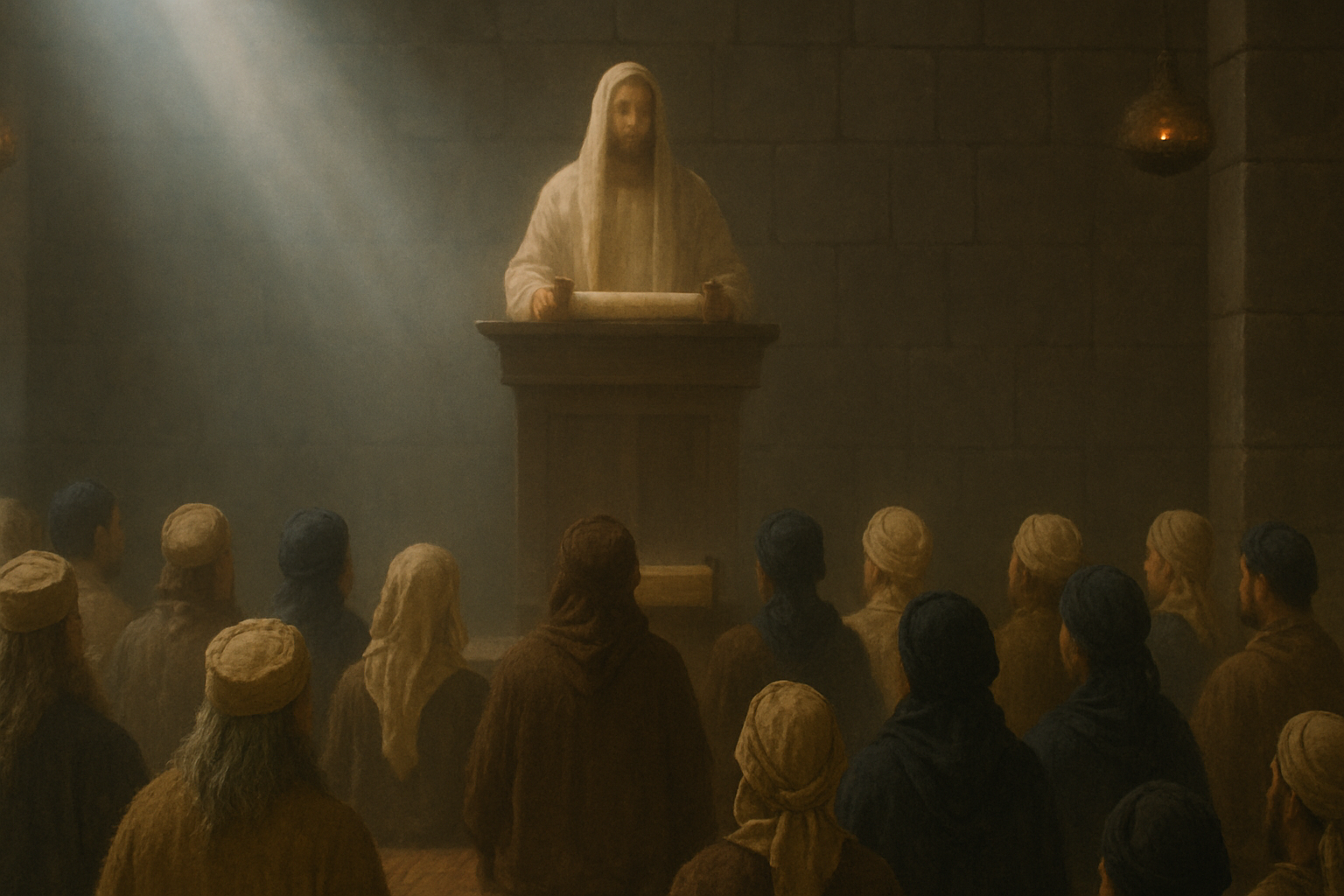Did Paul reject the ongoing relevance of the Sabbath and festivals prescribed in the Torah? Many cite Colossians 2:16–17 as proof that he did. However, a growing body of scholarship calls that interpretation into question. Scholars point out that the illegitimate judgment directed toward Colossian believers came from ascetics who did not observe the biblical calendar. Drawing on this scholarship, I argue that Colossians 2:16–17 does not invalidate the Sabbath and festivals but instead affirms their value.
Sabbath Observance in Luke-Acts: Situating the Earliest Followers of Jesus Within Judaism
This study demonstrates that Luke presents the earliest followers of Jesus as steadfast Sabbath observers, challenging the common assumption that they abandoned or disregarded this practice. By closely examining the references to the Sabbath in Luke’s Gospel and Acts, it is observed that Luke consistently depicts Sabbath worship as a standard practice among Jewish and Gentile believers. This portrayal suggests that the earliest followers of Jesus did not believe the Sabbath had been abrogated but saw it as integral to their faith and community life. These findings invite modern Christians to reconsider the relevance of Sabbath observance in their own spiritual lives. By highlighting the continuity between Judaism and the emerging Christian movement, this study contributes to scholarship on early Christian identity and practice, portraying the earliest followers of Jesus as a movement within Judaism.
Sex on the Sabbath: Does it Violate the Commandment?
Peter’s Warning About the Antinomians Who Misinterpret Paul’s Letters (2 Peter 3:15-17)
In 2 Peter 3:15-17, Peter warns that Paul’s letters contain content that is “hard to understand” and which “the ignorant and unstable” misinterpret. He then connects the mishandling of Paul’s letters to “lawless people.” In this article, I will argue that 2 Peter 3:15-17 represents Peter’s warning regarding antinomians (individuals who reject God’s law) misinterpreting passages in Paul’s letters to advocate for lawlessness.
The Law of Moses vs. the Law of Christ? (Galatians 6:2; 1 Corinthians 9:21)
The expression “law of Christ” appears only two times in the New Testament. In Galatians 6:2, Paul urges his readers to fulfill “the law of Christ” (τὸν νόμον τοῦ Χριστοῦ). Similarly, in 1 Corinthians 9:21, Paul states that he is “under/in the law of Christ” (ἔννομος Χριστοῦ). Traditionally, interpreters have frequently understood this expression to refer to a new “law” or ethic that supersedes the law of Moses. However, as Todd Wilson notes, there is a “growing scholarly consensus” that “law of Christ” directly refers to the law of Moses in some sense. This article makes a case for interpreting the phrase “law of Christ” in Galatians 6:2 and 1 Corinthians 9:21 as a reference to the law of Moses as it is taught and exemplified by Christ.
Does Ephesians 2:15 Say That Christ Abolished the Law of Moses?
Did Jesus Reject the Torah’s Dietary Laws? (Mark 7:1-23)
Jesus Fulfilled the Torah: What Does That Mean?
Does the Torah Prohibit Polygamy? An Examination of Leviticus 18:18
Do Not Neglect to Show Hospitality
When the New Testament authors talk about Abraham, they always highlight his faith. Indeed, Abraham is most well known, both in Judaism and Christianity, for his great faith in the God of Israel. But Abraham also exhibited another important godly characteristic that is often overlooked: hospitality.
The Coming Days of Noah
5 Characteristics of a False Teacher
We are told in 1 John 4:1 and other passages to “test” the message of a teacher or prophet to see if what they say is truly from God. The reason is that “many false prophets have gone out into the world” and are leading believers astray. What are some of the identifying marks of a false teacher/prophet?
The Gospel Revealed in the Sabbath
Don't Be A Flake
Who Are You to Judge?
It is often said that believers ought not to judge. Indeed, “Judge not that you be not judged” is one of the most memorized Bible verses ever. Even people who have never read a Bible in their life will immediately quote that verse to silence anyone who might dare express disapproval toward them. But is it true that we are not to ever judge anyone?
7 Ways to Observe Yom Kippur
Unleavened Bread and the Gospel
Did you know that God gives us physical things to do in order to teach us spiritual principles? Indeed, He didn’t give us a bunch of random commandments just to watch us jump through religious hoops. He is a loving Father, and His Torah (instructions) is designed to teach us His character and His truth. Every “jot and tittle” in God’s Word has a profound Spiritual purpose—whether or not we recognize it from our limited perspectives.
7 Ways to Celebrate Purim
Should Men Shave Their Beards?
5 Reasons Christians Should Keep Torah
The Bible records for us that all Scripture is breathed out by God and profitable for teaching, reproof, correction, and training in righteousness (2 Timothy 3:16), but many Christians today have forgotten some very important parts of Scripture—namely, the “instructions” of God, or in Hebrew, Torah.





















